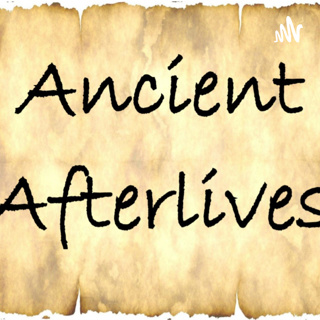
S2E4 - The Ancient Synagogue w/ Dr Tine Rassalle and Dr Rick Bonnie, Part 2
Om episode
In this episode of Ancient Afterlives, Joe Scales discusses all things related to the ancient synagogue with Drs Tine Rassalle and Rick Bonnie. This is part two of a two part interview, and we are going to organise a book giveaway on our Twitter page @AncientAlives for two books related to the synagogue. For more information please head on over to our Twitter page. Dr Tine Rassalle is an archaeologist, researcher, writer, video gamer, and biblical scholar. Her work concentrates on the intersection of religious material culture and the archaeology of the Ancient Near East, with a focus on ancient Judaism and early Christianity. She received her PhD from the University of North Carolina at Chapel Hill in the Autumn of 2021. Her thesis examined coin deposits found in synagogues in Late Antique Palestine. This dissertation can be found entirely online at www.ancientsynagoguecoins.com. Tine has spent time working for several academic and non-profit organizations, including the Kinneret Regional Project, ASOR Early Career Scholars Committee, the Carolina Center for Jewish Studies, and the Save Ancient Studies Alliance. She is about to start a new position as the curator for the Museum of the Southern Jewish Experience in New Orleans. Dr Rick Bonnie received his PhD in Archaeology in 2014 from the University of Leuven. He is currently a University Lecturer in Museology in the Department of Cultures at the University of Helsinki, and a founding member of the Centre of Excellence in Ancient Near Eastern Empires. His research interests include museum and heritage ethics, object biographies, decolonisation and provenance issues, museum collection histories, and sensory archaeology. He is currently working on two projects: the first "Making Home Abroad: Understanding Migrant Experiences and Heritage Implementation in Finland," is funded by the Finnish Cultural Foundation. The second: "Religious Responses to Climate Change in the Southern Levant," which is funded by a UH 3-year project.
Nyeste episoder

S2E4 - The Ancient Synagogue w/ Dr Tine Rassalle and Dr Rick Bonnie, Part 1

S2E3 - Jesus and Film, Clothing on Screen, Part 2 - Katie Turner

S2E3 - Jesus and Film, Clothing on Screen, Part 1 - Katie Turner

End of Season 1 reflections

S2E2 - Utopian Afterlives, Part 2 - Ryan Turnbull and Katherine Gwyther

S2E2 - Bonus! - Dua Lipa and Hauntology *without songs*

S2E2 - Utopian Afterlives, Part 1 - Katherine Gwyther and Ryan Turnbull

S2E1 - Jewish and Christian Women in the Ancient Mediterranean - Sara Parks, Shayna Sheinfeld and Meredith Warren
